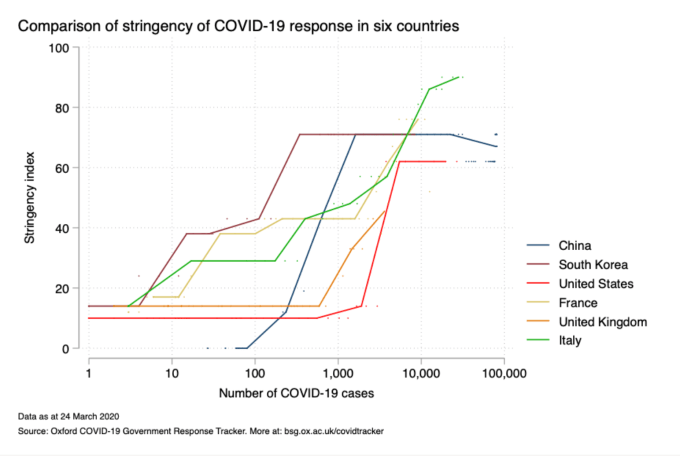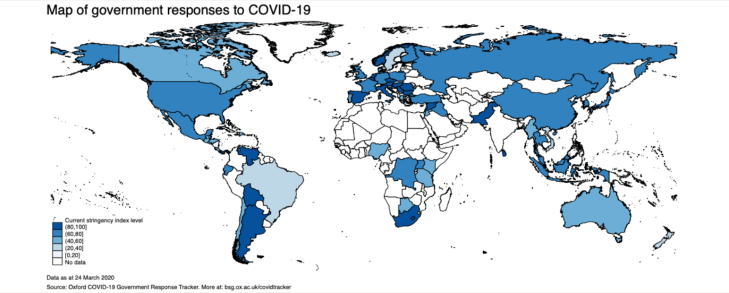Oxford University academics have launched a project to track government responses to the coronavirus pandemic.
The tool, called the Oxford COVID-19 Government Response Tracker (OxCGRT), tracks 11 indicators to generate an index that compares the stringency of policy responses around the world.
Nation state responses to the COVID-19 pandemic continue to vary widely, both in timing and stringency. The U.K., for example, only began imposing more stringent restrictions on Saturday, ordering bars and restaurants to close. Yet Denmark — a European country with fewer confirmed cases of COVID-19 — took similar steps around a week earlier.
The index, which is being made freely available, contains data from 73 countries at launch — including China, South Korea, Italy, UK and USA. The academics say it will continue to be updated throughout the crisis.
The idea is to help policymakers and researchers understand the impacts of different state interventions and identify triggers for implementing more or less strict measures during the public health crisis.

The range of government interventions being tracked for the index are:
- School closures
- Workplace closures
- Public event cancellation
- Public transport closure
- Public information campaigns
- Restriction on internal movement
- International travel controls
- Fiscal measures
- Monetary measures
- . Emergency investment in healthcare
- Investment in vaccines.
The academics behind the project, from Oxford University’s Blavatnik School of Government, are relying on tracking publicly available information.
They caveat the effort by saying it obviously does not represent the fill picture, nor should it be interpreted as measuring “the appropriateness or effectiveness of a country’s response”.
Commenting in a statement, Thomas Hale, associate professor of global public policy at the School and lead for the project, said: “Our index cannot, of course, tell the full story, but we believe the data we have collected can help decision makers and public health professionals examine the robustness of government responses and provide a first step into understanding exactly what measures have been effective in certain contexts, and why.”
The OxCGRT can be found here — where project data and notes are also available for download.

